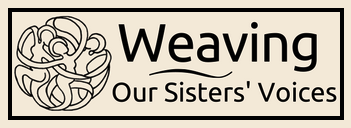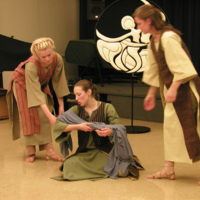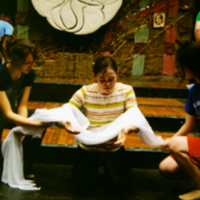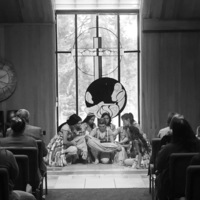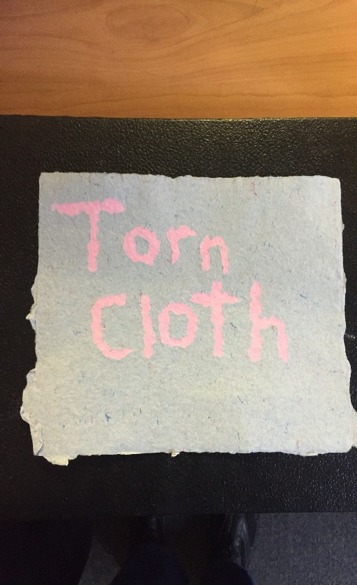Reflections
Colleague Karen Lund, Associate Director at Taproot Theatre, Seattle observed the performance, and I asked her thoughts. She said “just look at your students and listen to what they are saying! This is a transformational experience for them.”
Janine Warrington, who played the role of Miriam, spoke of her desire to be a pastor in the future and the challenging conversations she had faced in her life already in sharing her hopes as a women. She said “When I say the line, ‘And God called, me, Miriam, a prophet’ I am not just saying a line, I believe it is my calling as well. If Miriam can move forward in confidence, then so can I.”
Janine said, “For me, Miriam is a very vulnerable role. When I say, “God called a woman – me – to lead God’s people,” that’s not Miriam talking. That’s me. I want to be a pastor after I graduate, and society has a hard time accepting that.”
One audience member asked: What do you think the significance of the theme of suffering in the script is? I remember listening to various students respond, and in the end they shared that the ancient belief was that if you prospered, it was because God favored you. These women suffered, so clearly, God had a problem with them. These stories show us that yes, these women suffered but they came out stronger because God was with them in the suffering. The students ability to transcend ancient customs and perspectives to see the connection to lives today was very powerful.
"The scene with Elizabeth, Mary, and Jochebed is all about motherhood, from the birth of their newborn babies to letting them go. When we started working this scene more intensely, I started to realize how significant it was to me. As it was time for me to start new adventures away in college, it never really hit me that I was going to practically be living on my own for the first time away from my family. But what hit me the hardest was saying goodbye to my parents as they let me go. That was when this scene meant so much more to me than just Elizabeth, Mary, and Jochebed explaining to the audience what being a mother is like. I started to relate this scene to my personal experience and what it must have been like for my parents to say goodbye to me, just as Jochebed cast Moses on the Nile River, etc. This realization not only helped me get more emotionally invested in this scene, but a deeper, newfound appreciation and love for my parents grew as well."
-Briana Ofilas, cast 2015
The themes of the production remained the same, but for me to witness the different casts of women grow from the content, the stories the connection to each other and artistic collaboration was particularly enriching. New productions are always an exciting thing to sink my teeth into, but just as Scripture has stood the test of time and people continue to go back to it and are fortified and enriched by it, so too has my life been enriched by the different iterations of this theatrical production. My hope is that it can do the same for others for a very long time.
Dr. Linda Schearing shared this poem after the 2016 Whitworth performance
Making torn cloth into paper
Isn’t easy…
BUT it CAN be done.
The same is true of Healing.
We live in a world full of pain,
Injustice,
And abuse.
Healing‘s not easy…it requires work AND
It may be costly.
To speak out against injustice
Requires strength and courage.
But the good news is…
Biblical texts tell us
That we are NOT alone.
And that’s the miracle of it all!!!
With God’s help
- IF we are willing to ACT - to SPEAK out
Torn lives
CAN be made whole.
Weaving Our Sisters’ Voices pulls together the important themes of our lives. Participating either as collaborator, performer or audience teaches us…
That anger gives us strength
To combat injustice
That risk taking is worth paying
The price it demands
That justice is the right
Of every woman, everywhere
That courage is necessary
To oppose unjust legal systems
That women are not objects
But worthy of love in their own right
That mutuality, not abuse, should characterize
our relationships with men
That confidence in our abilities
Sustains when those around doubt us
That true power is based
On integrity and good deeds not social status
That self-worth is a human right
Not a prerogative of privilege
And that faith in God
Makes the least of us,
the greatest in God’s sight
By telling stories and listening to them we are standing with our sisters, mothers, and grandmothers of the past. Together living these stories we are touched, challenged, empowered and healed. Indeed a weaving of women’s voices, sister’s voices and our voices.
Suzanne Ostersmith
